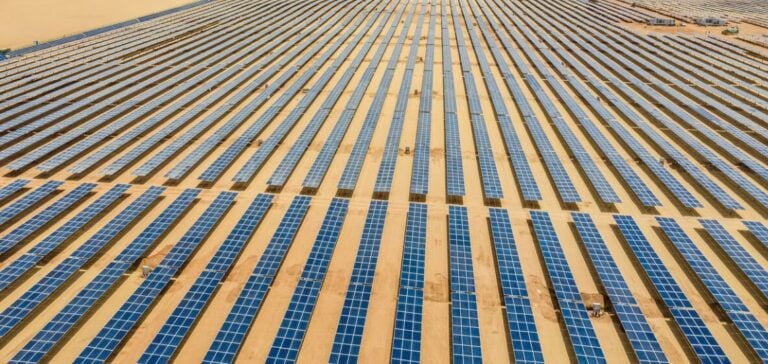Renewable energy capacity in the Middle East is set to grow exponentially over the coming years. According to the latest research from Rystad Energy, green energy sources will surpass fossil fuel use in the electricity sector by 2040. Solar PV will emerge as the main energy source, accounting for more than half of the region’s energy supply by mid-century, up from just 2% last year. By 2050, renewable energy sources, including hydropower, solar and wind, are expected to make up 70% of the Middle East’s electricity generation mix. This significant leap, from just 5% to the end of 2023, marks a radical transformation of the region’s energy landscape. Despite this rise in clean energy installations, the region will continue to rely heavily on fossil fuels and natural gas in the short term, with usage set to grow to a peak around 2030.
Economic and demographic context
The Middle East’s energy sector is at a turning point. Traditionally an oil and gas powerhouse, the region is shifting its focus to renewable energies in response to rapid industrial growth, a growing population and global pressure to reduce carbon emissions. Home to over 280 million people and one of the world’s fastest-growing populations, the Middle East has seen its energy demand double over the past 20 years. By 2050, energy demand will have risen to around 2,000 terawatt-hours (TWh), compared with 1,200 TWh today, due to industrial development, population growth and the electrification of transport and other sectors.
Impact of the residential and industrial sectors
Currently, the residential sector accounts for 40% of total energy demand, followed by the commercial sector at 26% and the industrial sector at 22%. The remaining 12% includes sectors such as agriculture and transport. Electricity generation in the Middle East relies heavily on fossil fuels, accounting for 93% of the total by the end of 2023. Renewable energies accounted for 3%, and nuclear and hydropower for 2% each. Natural gas-fired power generation accounted for almost three-quarters of the region’s electricity generation.
Green energy projections and challenges
By 2030, around 30% of the region’s installed capacity is expected to come from renewable energy sources, with the potential to rise to 75% by 2050. Battery energy storage is set to grow significantly in the 2030s, supporting the intermittency of solar and wind power and facilitating a smooth energy transition. Due to the relatively low potential for hydropower and low gas prices, the Middle East will continue to use gas-fired electricity as its main source of power, and ultimately as a long-term transitional fuel.
Regional initiatives and progress
Although the Middle East lags behind Asia and Africa in the transition to renewable energies, ambitious projects are underway. For example,Saudi Arabia, the United Arab Emirates, Oman and Israel are expected to account for almost two-thirds of the region’s total solar capacity by the end of the decade. The Sudair solar project in Saudi Arabia, with a capacity of 1.5GW, is now fully operational, increasing the country’s total installed solar capacity to over 2.7GW.
Middle East commitments
Saudi Arabia is targeting a capacity of over 58GW by 2030, illustrating its commitment to boosting renewable energy generation. The United Arab Emirates plans to increase its solar PV capacity from 6GW today to 14GW by 2030, with a target of 44% renewables in its energy mix by 2050. Oman, meanwhile, plans to increase its renewable energy capacity from 700MW today to almost 3GW by 2025 and 4.5GW by 2030. The transition to renewable energies in the Middle East is not only necessary to meet growing energy demand and diversify the economy, but is also crucial to achieving the region’s long-term sustainability goals.






















